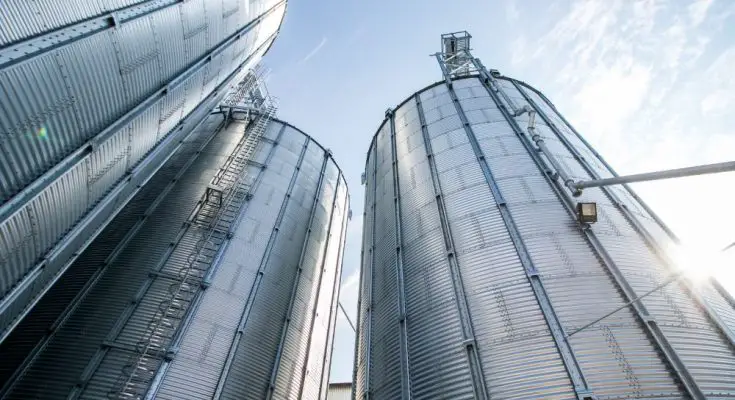Industrial silos find use in hundreds of industries for assorted reasons, but not all silos are the same. There are two basic kinds of silos: horizontal and vertical. Horizontal silos serve certain purposes, and vertical silo tanks have their own special applications. Vertical silos are preferable due to their strength, stability, and efficiency. They have these qualities because of their unique shape and are great for storage and distribution purposes. Here’s a quick breakdown of industries that utilize vertical storage silo tanks and why they do.
Agriculture
The first industry most people think of when they think of silos is agriculture. But agricultural silos aren’t the tall, red, wooden, cylindrical structures you see along country roads (well, not always). They are often wood, but they can also be stainless steel, carbon steel, and concrete, depending on what they store. Silos can be open on top or sealed and equipped with devices to maintain pressure and oxygen levels. Grains and other organic materials intended for use in food processing can remain dry and protected from rot, mold, mildew, and more inside them.
Food and Beverage
Factories that process and handle food, particularly things like grains, sugar, flour, and other granular substances, need a place to store and secure those materials. Powdery organic substances run the risk of floating in the air, increasing the possibility of fires and explosions. To a lesser extent, silos protect food from rot, mold, and infestation from rodents and other vermin. It’s easy to store and dispense these goods when they remain in a vertical silo.
Chemicals
One of the biggest industries that utilize vertical storage silo tanks is the chemical industry. Safety is another big concern here since many hazardous chemicals must remain contained and secure. The industry tends to rely on three types of materials for tanks: stainless steel, polyethylene, and fiberglass. The choice of materials depends on the chemicals used and how they react to the substances containing them. Stainless steel can handle loose particulates, but plastic containers may be the only ones that can contain some acids without breaking down. Leaks are a big concern, as is the potential for explosions and fires.
Construction
Silos are terrific for storing construction materials. Having a cement silo on a job site keeps the cement conveniently nearby and ready to pour out in measured amounts. Because silos can keep things dry, they also ensure the cement doesn’t get wet and solidify prematurely. Furthermore, they keep it out of the way. The vertical structure of the silos uses gravity to keep the cement flowing as well, and the silo’s sturdy construction prevents leaks, ruptures, and spills.
Whatever your industry, there’s probably a silo available for you and your facility to ensure safety, efficiency, and more!


